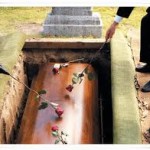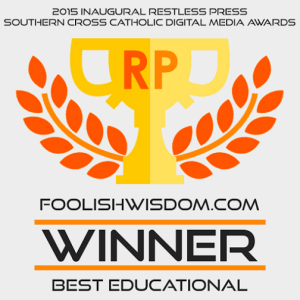
Death. A Part of Life.
It turns out that I am dying. One day, in the not too distant future, I will be dead. It may be tomorrow or it may be in seventy years, but either way, compared with the scope of history, it will be fairly soon. It will happen to me and to you and to everyone we know. In fact from the moment we are born we are on a path towards death. Death is actually happening all around us. As you read this an old man is breathing his last breath in a nursing home and a middle-aged woman is saying goodbye to her family in a hospital. Over 150,000 deaths occur worldwide each day, yet the modern psyche seems less equipped to deal with death than ever before.
For all of history, illness, death and grief have generally taken place in the home within a family context. However, in the Western World in the last century, death and illness have been relocated behind reception desks and security staff into hospitals, nursing homes and palliative care units. People go in and bodies come out. Yet for most of us the closest we will get to that, is sitting in our car next to a windowless mortuary van at the traffic lights. Of course our progress in healthcare and nursing is a wonderful achievement but it has come at a price, that of us seeing death as a somewhat unique anomaly. This compartmentalisation of death in modern society into purpose built institutions away from ‘real life’ has resulted in a general ignorance and even fear of death.
I saw a film a few years ago titled The Waiting City in which a young Australian couple journey to Calcutta to collect their adopted baby. The film is shot entirely in India and showcases a world that is very different to the one this young couple has come from. One scene shows the funeral of a young child. While this boys dead body is pushed out on a burning pyre across the river; his young friends stand calmly on the banks and sing a Hindu funeral hymn. What stood out was the reality that these children had a greater understanding of death (and probably also of life) than most adults in the Western World.
Death is so very important; we might call it, the great leveler. At the threshold of death, all men and women must, at some point, submit. For the believer, death is the whole purpose of life, it is the entry into eternity and so all of life on earth should be lived with that in mind. Christian tradition has long encouraged the faithful to pray for a ‘happy death’, that is, the foresight to prepare now for that moment when one will stand before the Creator. For the non-believer, death provides a reminder that nothing in this world will last forever, not riches or power or even thankfully pain and suffering. Without death there would no doubt be far more tyranny, greed and selfishness. It would do all of us good on occasions, to stop and reflect on death, and to live our life with that on the horizon.
Living in the 21st century, adults who may have experienced little if any death in their life can fall into a tendency to overprotect children from the realities of grief and loss. We should of course protect children (and ourselves where possible) from gruesome and violent aspects of death, but death in and of itself is not gruesome. In our world death so often gives way to life; the branches of a plant must be pruned to allow for new growth, smaller animals are consumed by larger ones and soldiers give their lives for the lives of their countrymen.
I recall sitting before the bodies of two of my deceased grandparents and while there was the obvious sadness at the loss, it impressed upon me that their whole life and every experience had culminated at this moment. From the generosity of their lives, my own life came about and this is how it has been right back to the dawn of time. In a world that is so unrelenting and unforgiving there is something surreal about being present at a death. Through the tears it is a moment to stop and give thanks for the beauty of life. Far from shunning death and grief, our modern society may just find some much needed healing in recalling that death is an essential part of life.


